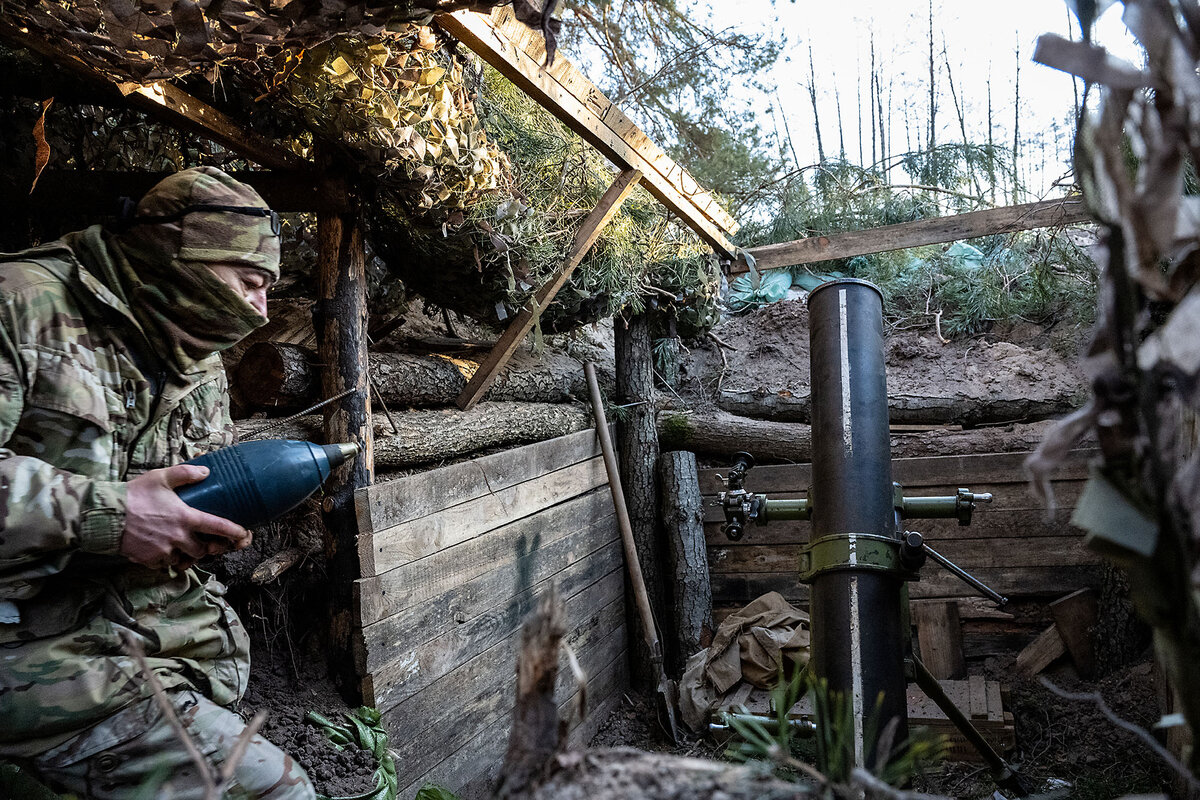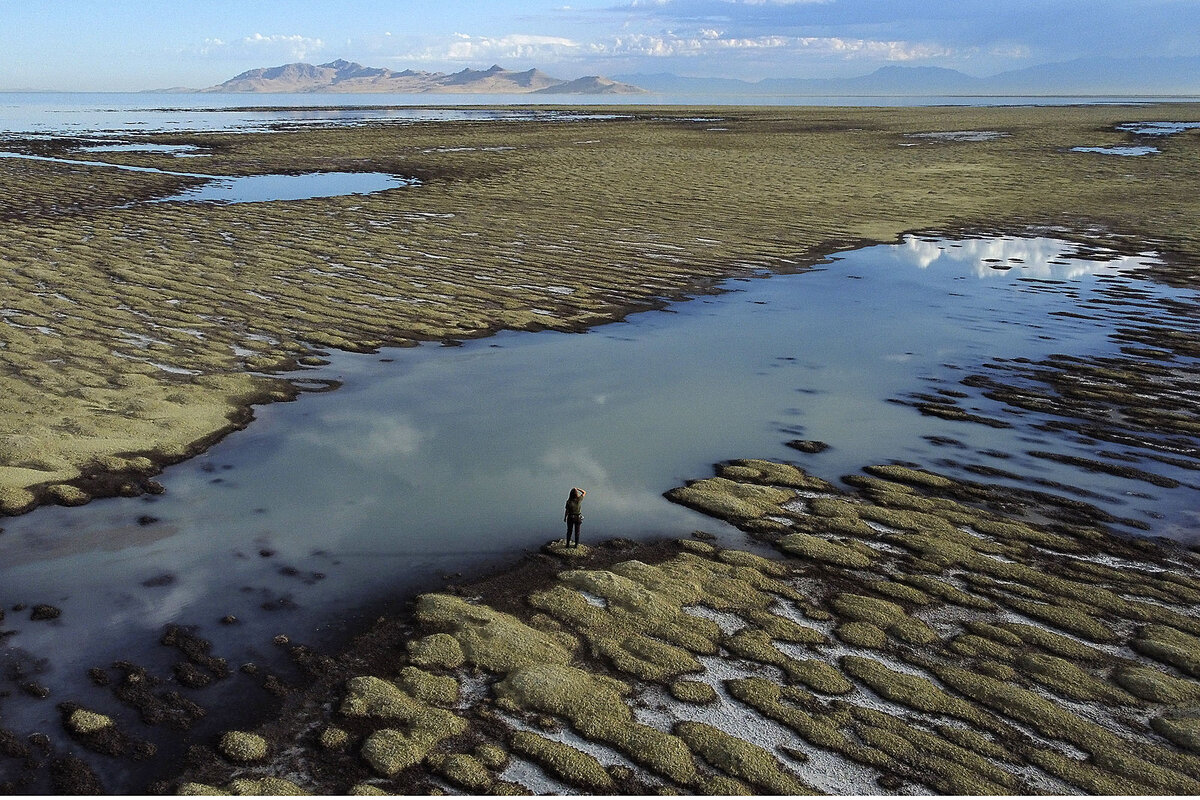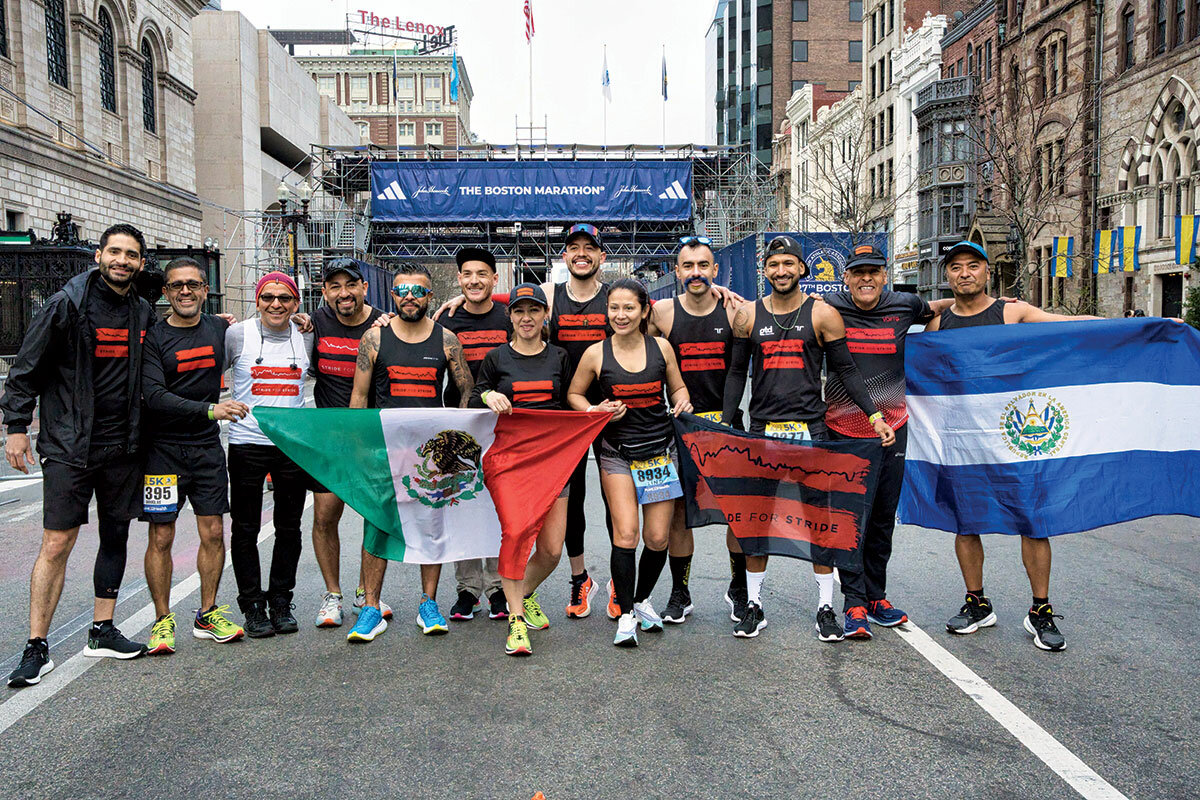Is trust the bedrock of international relations, or is predictability? In recent years, the U.S. and China have had to learn how to navigate growing mistrust and make progress toward stability.

Why is Christian Science in our name?
Our name is about honesty. The Monitor is owned by The Christian Science Church, and we’ve always been transparent about that.
The Church publishes the Monitor because it sees good journalism as vital to progress in the world. Since 1908, we’ve aimed “to injure no man, but to bless all mankind,” as our founder, Mary Baker Eddy, put it.
Here, you’ll find award-winning journalism not driven by commercial influences – a news organization that takes seriously its mission to uplift the world by seeking solutions and finding reasons for credible hope.
Explore values journalism About usMonitor Daily Podcast
- Follow us:
- Apple Podcasts
- Spotify
- RSS Feed
- Download
 Mark Sappenfield
Mark Sappenfield
Is China really the enemy of the West?
The easy answer is yes. It plays into simplistic narratives. That’s why I’ve always appreciated the work of Monitor writers such as Fred Weir, Taylor Luck, and Ann Scott Tyson, to name a few. They write not from a Western perspective, but as someone with a genuine affection for the good on all sides, and they seek simply to understand the forces at work.
Today, we have Ann weighing in on the China question. If you want to understand the evolving relationship between the United States and China, her story is a fresh perspective.
Already a subscriber? Log in
Help fund Monitor journalism for $11/ month
Monitor journalism changes lives because we open that too-small box that most people think they live in. We believe news can and should expand a sense of identity and possibility beyond narrow conventional expectations.
Our work isn't possible without your support.
Today’s stories
And why we wrote them
( 6 min. read )
Today’s news briefs
• Alabama embryo ruling: The Alabama Supreme Court rules that frozen embryos created during fertility treatments should be considered children under state law.
• Kansas City shooters charged: The two men charged with murder in last week’s shooting after the Super Bowl parade for the Kansas City Chiefs were strangers who began firing within seconds of starting an argument, according to court documents.
• Food aid to Gaza halted: The World Food Program has paused food deliveries to isolated northern Gaza because of increasing chaos across the territory.
• Massive black hole discovered: Scientists pinpoint what may be the brightest object in the universe. The record-breaking quasar has a black hole at its heart that’s so big and growing so fast that it swallows the equivalent of a sun a day.
• More student loans canceled: The Biden administration is canceling student loans worth $1.2 billion for some 153,000 people who are eligible.
( 7 min. read )
In the midst of a grim third winter of a grinding war, Ukrainian soldiers voice mixed emotions: gratitude for U.S. support so far, but concern that Americans unsure of their global role won’t supply the ammunition the soldiers need to stop Russia.
( 4 min. read )
A new government is preparing to take the reins in Pakistan, but not the one its people elected. After what many believe to be the most brazenly rigged election in the country’s history, will this new coalition be able to steer Pakistan through political and economic turmoil?
( 5 min. read )
Local newsrooms in Utah are trusting collaboration over competition to shore up solutions for the critically low water levels of the Great Salt Lake.
( 5 min. read )
Running is often considered widely accessible – if you are able-bodied and have running shoes, you, too, can be a runner. Racing, however, is expensive. That’s where team Stride for Stride comes in.
The Monitor's View
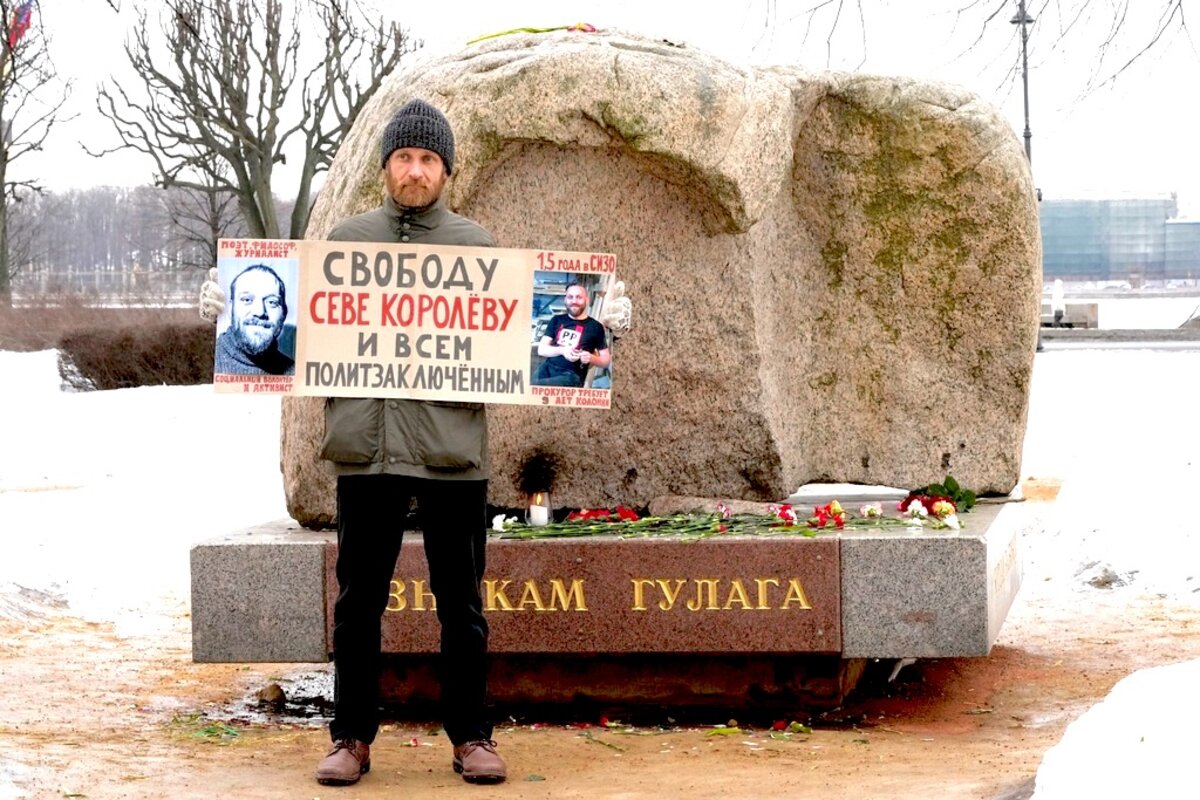
( 2 min. read )
Recent protests in the United States, Israel, and Iran have been notable for being leaderless. Held together mainly by civic values spread on social media, they were able to draw greater attention to their message than a messianic leader. This is now the position in which Russia’s democratic movement finds itself following what appears to be the killing last week of leading opposition figure Alexei Navalny.
His exiled widow, Yulia Navalnaya, vows to carry forward the campaign against the regime of Vladimir Putin that Mr. Navalny began 15 years ago. It is too early to tell if many Russians will coalesce behind her. Yet like her husband, she reflects the vision of a Russia that someday embraces honest governance and a freedom from fear.
“Russia can be a normal European country,” she told the European Union this week. “A country where political conflicts are resolved through fair elections and not through prisons, poisons, and bullets. ... Full of dignity, justice, and love.” Earlier the same day, she posted a video on YouTube encouraging pro-democracy supporters to not be afraid.
Her words mirror her husband’s conviction that individual Russians have the capacity to lift up their country. “That’s his legacy, the raising of at least one generation of politically aware and kind people who understand that democracy, truth, freedom of speech is a good thing,” one of his campaign’s volunteers, Anna Kovalevskaya, told the Australian Broadcasting Corp.
He led by example as much as by organizational skill. “Perhaps [Mr. Navalny’s] most important political insight was his recognition of how his own moral leadership – the sacrifices of his health and freedom he was willing to make on behalf of his cause – could cut through the cynicism that so often dominates Russian political life,” wrote Dylan Myles-Primakoff, a Russia expert at the Atlantic Council.
Many public memorials to Mr. Navalny reflect the call to action that he inspired. Some people are “saying that hope died together with Navalny,” Nadya Tolokonnikova, a member of the exiled Russian punk rock band Pussy Riot, told The Associated Press during a protest outside the Russian Embassy in Berlin on Sunday. “But it seems to me that with [the death of] Navalny it wasn’t the hope that died, but rather responsibility was born.”
In his closing statement during his 2021 trial that led to his Siberian imprisonment, Mr. Navalny rooted the certainty of his democratic cause in a line from Jesus: “Blessed are those who hunger and thirst for righteousness, for they will be satisfied.” He saw those words as “more or less an instruction to activity,” or “participation in the battle between good and neutrality,” as he told Russian writer Boris Akunin.
Ms. Navalnaya urged European leaders to withhold recognition of Mr. Putin as Russia’s president after next month’s elections that are set up for his victory. But her most important suggestion was to “always distinguish” between Mr. Putin and the Russian people. They are the leaders more than any one person.
A Christian Science Perspective
Each weekday, the Monitor includes one clearly labeled religious article offering spiritual insight on contemporary issues, including the news. The publication – in its various forms – is produced for anyone who cares about the progress of the human endeavor around the world and seeks news reported with compassion, intelligence, and an essentially constructive lens. For many, that caring has religious roots. For many, it does not. The Monitor has always embraced both audiences. The Monitor is owned by a church – The First Church of Christ, Scientist, in Boston – whose founder was concerned with both the state of the world and the quality of available news.
( 3 min. read )
At any moment, we can enter what Jesus described as our closet of prayer and discover more of the pure goodness we receive from God.
Viewfinder
Palestinian children play during the Eid al-Adha holiday, in Gaza City, June 6, 2025.
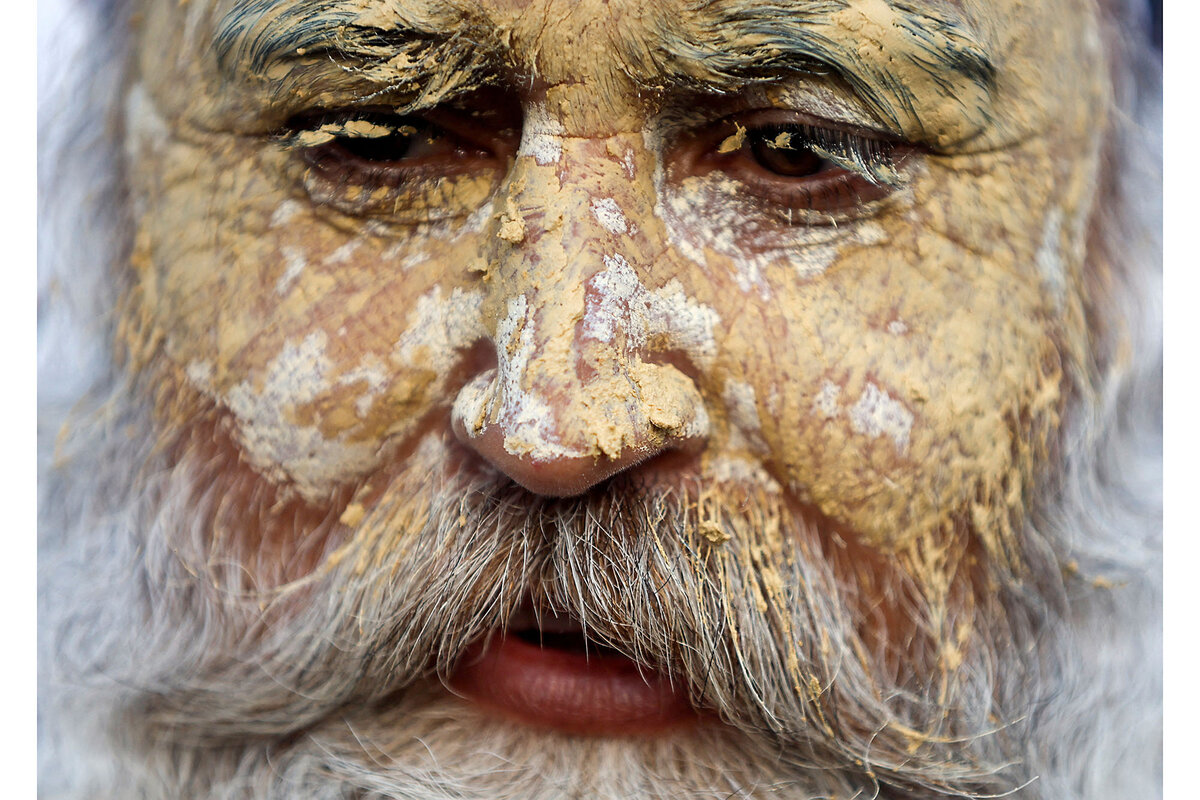
A look ahead
Thank you for joining us today. Tomorrow, we’ll have another fresh perspective on a major item of world news. Our Fred Weir will weigh in on how the Ukraine war looks from Russia. What is the mood in Russia two years on?




